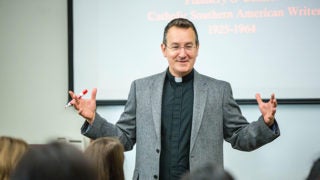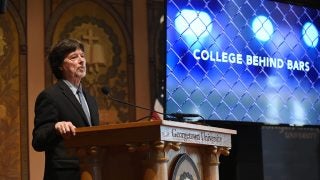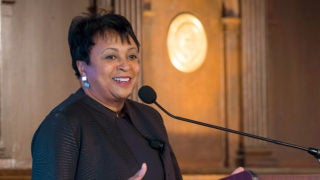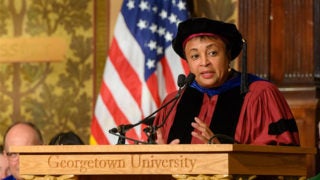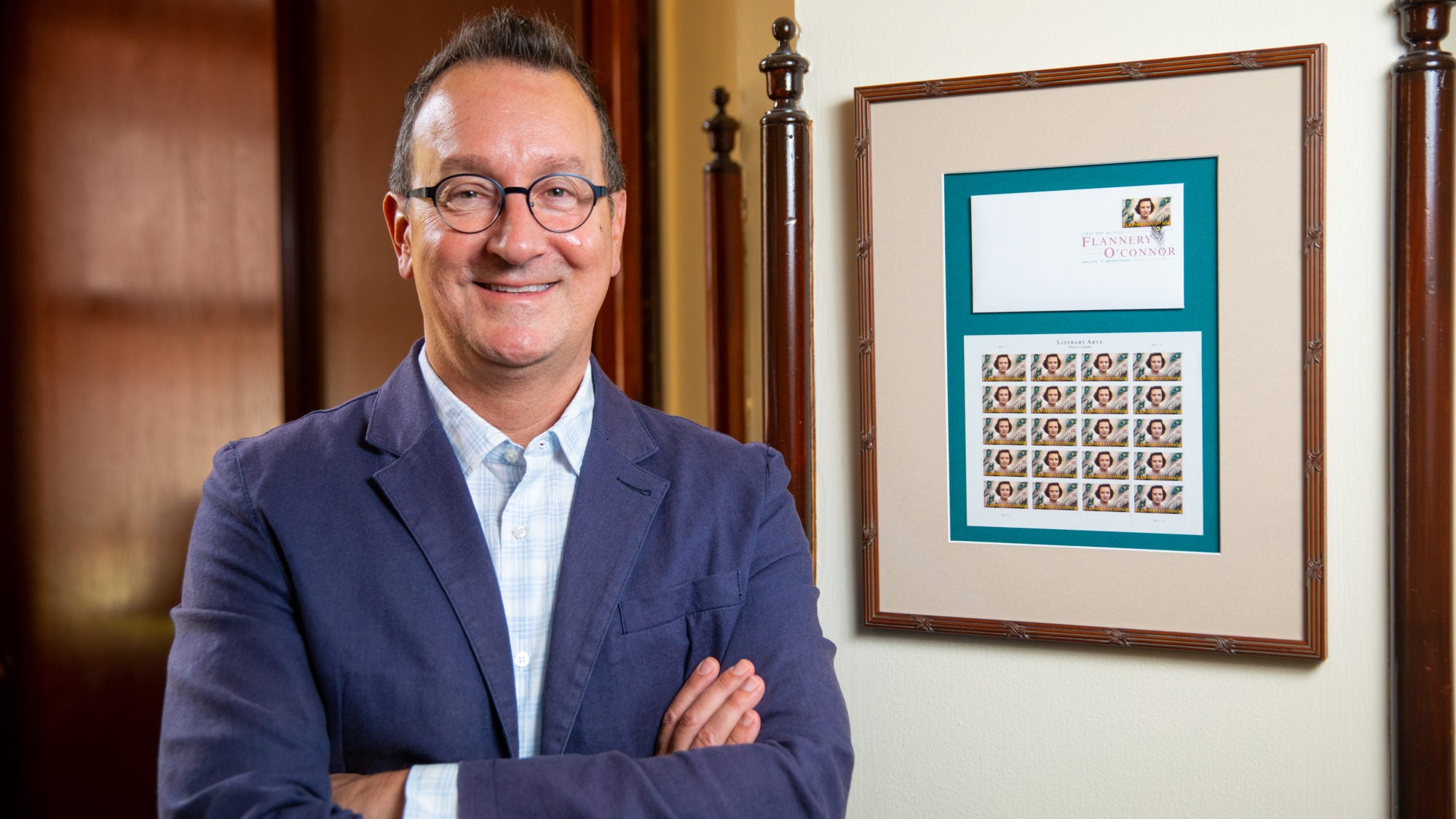
Title: Prestigious Film Award Goes to Georgetown’s VP for Mission and Ministry
A Georgetown Jesuit is honored by Ken Burns and the Library of Congress for co-directing a film on a famous Catholic writer.
Rev. Mark Bosco, S.J., Georgetown’s vice president for mission and ministry, has received the first Library of Congress Lavine/Ken Burns Prize for a film he co-directed and produced about the life of Catholic author Flannery O’Connor.
The Better Angels Society, the Library of Congress and the Crimson Lion/Lavine Family Foundation announced today that the prize, which provides Bosco and co-director Elizabeth Coffman with a $200,000 finishing grant, has been awarded to FLANNERY, a feature-length documentary.
Coffman is an associate professor at Loyola University Chicago, where Bosco served as an associate professor of English and theology before he came to Georgetown.
Compelling Narrative
The film explores the life and writings of O’Connor, whose provocative, award-winning fiction about southern prophets, girls with wooden legs and an assemblage of unique and often fantastic characters has inspired artists, musicians and writers around the world.

“It is such a great honor to receive this award, as it highlights Flannery O’Connor’s unique place in American literature,” explains Bosco, an expert on O’Connor as well as on Graham Greene. “Her life and her work resonate with contemporary issues concerning faith, race, gender, and disability. Her stories vividly portray narratives of cultural conflict in a nation still haunted by religious belief.”
The new annual prize recognizes a filmmaker or filmmakers whose documentary uses original research and compelling narrative to tell stories that touch on some aspect of American history.
‘Beautifully Told’
“FLANNERY is an extraordinary documentary that allows us to follow the creative process of one of our country’s greatest writers,” said Ken Burns, the legendary filmmaker. “It also provides us a glimpse into her life, including her Catholic faith, her unusual sensitivity to race as a Southern white woman and her daily struggles with illness and the prospect and reality of an early mortality.”
Burns was on campus this past March to talk with university leaders, faculty and students about the power of education and the use of narrative to address critical societal issues.
“The story is beautifully told and captures the power of her southern birth and life,” Burns added of FLANNERY. “We’re hopeful that a new generation of readers will re-discover the writings of Flannery O’Connor because of this film.”
The documentary was among 80 films submitted for consideration earlier this year.
‘Thoughtful Reflection’
Ten films were then reviewed by an internal committee comprising filmmakers from Florentine Films and expert staff from the National Audio-Visual Conservation Center, the library’s moving image and recorded sound preservation facility.
The six finalists were then reviewed by a national jury, and the winner was selected by the Librarian of Congress, Carla Hayden, in consultation with Burns.
“Ken Burns and I were in immediate agreement,” Hayden said. “As the Librarian of Congress, I’m of course thrilled that the subject of the winning film was a writer. But more important, the film is a beautiful and thoughtful reflection about the power of words and contemplation as well as the satisfaction that comes from a commitment to art and craft.”
Hayden also has visited Georgetown. In 2017 she spoke on campus about libraries in the digital age.
Applauding the Directors
Philanthropists Jeannie and Jonathan Lavine, who provided funding to The Better Angels Society to endow the award through the Crimson Lion/Lavine Family Foundation, praised the winners.
“We are honored to support this award,” they said in a joint statement. “We believe that history helps all of us better understand who we are as a people and how our culture is enriched by diverse voices. Flannery O’Connor was an artist of remarkable talent and originality, but she also defied simple categorization given her southern upbringing, her strong Catholic faith and her commitment to a sense of place and individuality.”
“We applaud Elizabeth Coffman and Mark Bosco for their work …”
